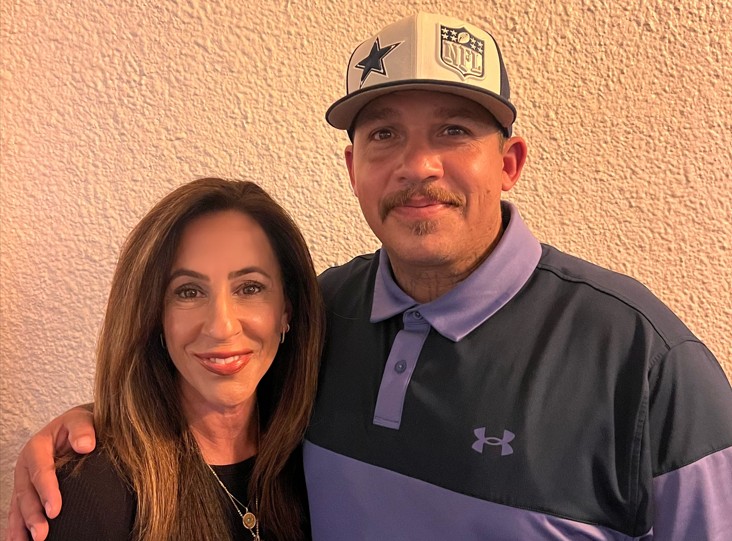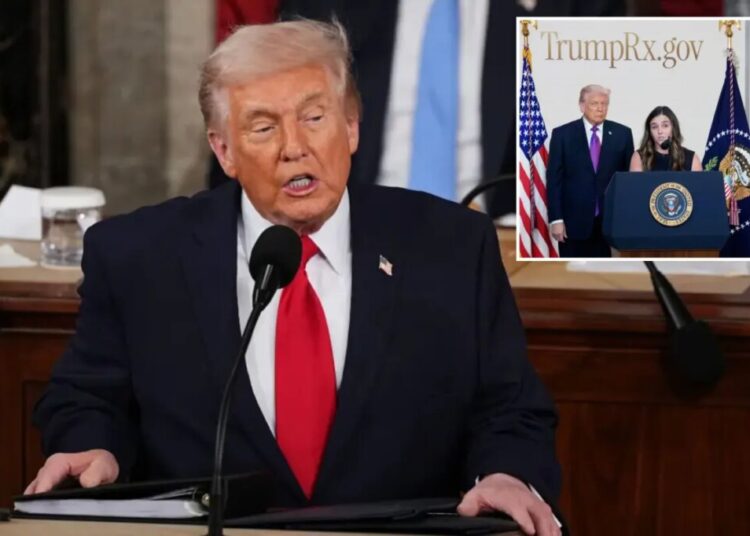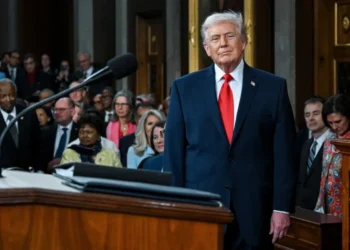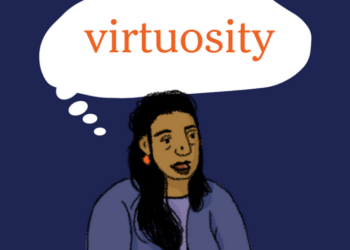At 38, in my career as a prosecutor, I only met cops and robbers. I was putting away the bad guys, living in a world of judgments based on people’s pasts: their rap sheets.
By the time I met Joseph Herrera, then 19, he was entrenched in criminality; I argued that he should spend the rest of his life behind bars. As a gang member, he’d almost brutally murdered his victim in the most personal of ways, by stabbing him. At trial, I didn’t make eye contact. It would have meant I was personally challenging him. It was never personal. I didn’t care about him, and why should I have? I’d taken an oath, and he had been a predator who had chosen his path.
Two decades later, I stood beside him — this time, not as his adversary but as his friend, preparing to speak at a prison where he coaches rehabilitation. How to have a life after life. If you had told me this would be my future, I would have called you delusional.
Sometimes, life gives you a second chance to understand someone you once condemned.
Twenty years ago, he lied on the stand at trial and never showed remorse. A jury convicted him. After I argued he would never be a meaningful member of any society, a judge agreed and put him away for life.
At his sentencing, his mother cried. I averted my eyes and packed up for another trial. I moved up the ranks in the district attorney’s office, tried major cases, earned a reputation for being unflinching.
Yet underneath my polish, something started to fray. A personal unraveling forced me to confront how tightly I had clung to judgment as a way to make sense of chaos. I started seeing gray where I used to see black and white. I began wondering about the people I had locked away, and whether justice could hold both accountability and humanity.
In therapy and in meditation on weekends, I began to ask myself harder questions. About power. About whether what we were doing was effecting change in this broken world.
In 2017, I was given marching orders to go to a parole hearing. I hardly recalled Joseph Herrera. I had kids about the same age as Joseph was when he committed his heinous crime. I knew more about the mistakes and immaturity of youth, and how they envision themselves as bulletproof, literally.
I was expected to oppose his release. I didn’t want to go. That day would be the most important one in my 30-year career.
Joseph argued to be released, speaking to the parole board with unexpected poise, candor and vulnerability. It was not a sob story of a traumatic past, even though factually it was. It was an honest accounting of a lifetime of bad choices on a foundation of ancestral bad decisions. His parents were addicted to drugs and in gangs. Joseph was born in a jail, kidnapped for ransom as a child. I found myself in tears listening and inwardly rooting for him. As a child of Holocaust survivors, I understood trauma. Yet I was part of a system that was wary of stories and promises, and my ultimate duty was to protect the public.
It would be two more years of hard inner work before Joseph was let out. I felt compelled to reach out to him, and we began a correspondence. Over time, we stopped being prosecutor and prisoner, and we became people — two flawed humans trying to understand how we got here. We had lengthy conversations of depth: morality, rehabilitation, criminality, family hostilities, accountability, religion.
In a public talk, he told a crowd of parolees that “my DA is now my friend.” He took responsibility for his crimes.
We began speaking publicly about our story — Joseph from the side of accountability, me trying to model the notion of finding connection and humanity.
Joseph taught me that transformation is possible even in the darkest places. That seeing someone for who they are becoming is more powerful than condemning them for who they were.
He also taught me something even harder: how to accept my own flaws.
That’s the part no one tells you about redemption. It’s not just about freeing the person in the cell. It’s about freeing the one who put them there, too.
When people hear about us, they often ask if it’s a gimmick. A publicity stunt. What is our relationship, really?
We are both married, have children and have jobs. He has his life and I have mine. But he will always be a part of my story.
I didn’t reconnect with Joseph to be absolved of anything. But in doing so, we stopped being the characters in a true crime story. We are two people trying to make sense of the narratives that shaped us. He was taught to hate law enforcement, and I was educated to be fearful of crime. Everyone has tightly held beliefs because everyone has some story, some pain or suffering that defines their view. No one gets out of this world without it.
Joseph recently texted me, “Guess where I am.” The next text was a photo of Joseph with his tattoos showing, with a juror badge on.
Once judged, now called to judge.
“I want to get on a jury. I believe in accountability.”
I knew this to be true, yet those tattoos, his rap sheet. He would get kicked off.
We live in a world eager to divide, to judge quickly and forgive slowly. A world that thrives on fear and division, telling us to sort people into villains and heroes.
Would I have kicked him off my jury? Probably.
Would I have missed one of the most honest, empathetic and wise voices in the room? Absolutely.
Karen McKinney is a prosecutor and the author of Misjudged: An Unlikely Friendship Between a Prosecutor and a Convict. The book is available for pre-order. She is on Instagram @karenmckinneywriter.
The post I put a man in prison for life. We’re both proof that people can change. appeared first on Washington Post.




